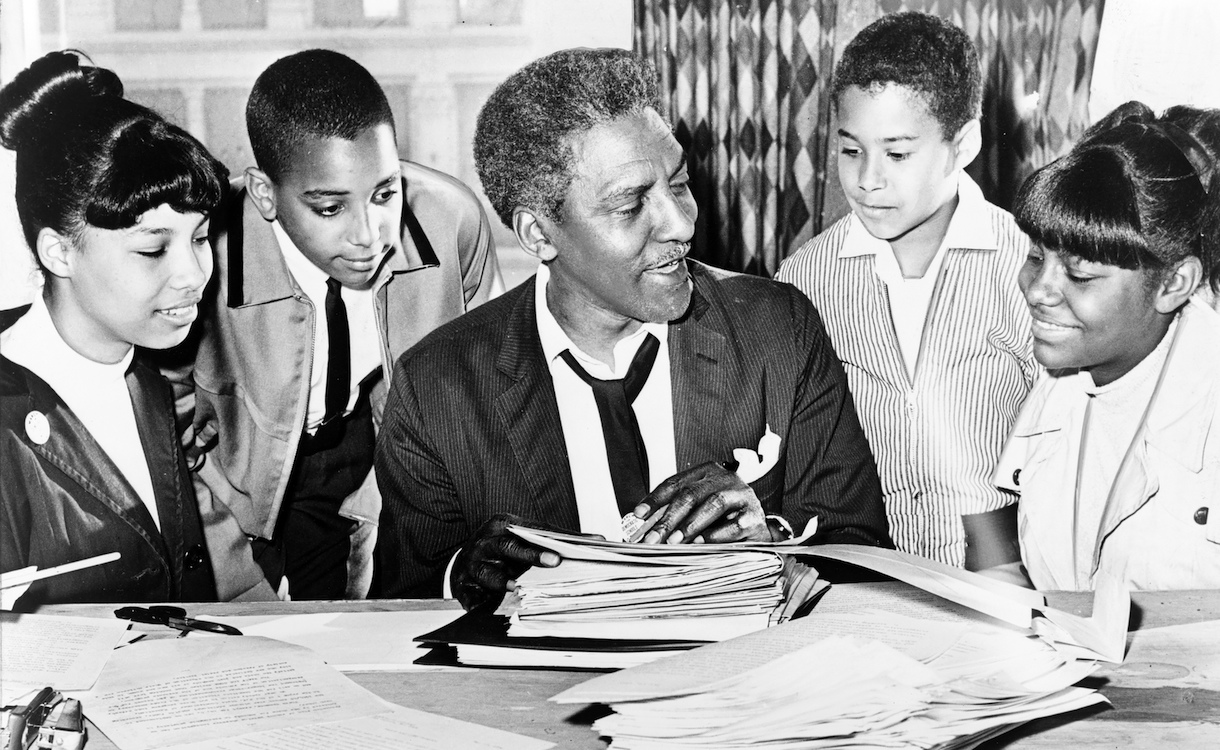
It’s Black History Month and we’re delving into the stories of those often overlooked in history books. Unlike Dr. Martin Luther King Jr., Rosa Parks and Harriet Tubman, these African American figures are not well known, but they have made significant contributions to civil rights, the WWII effort and medicine. These are a few stories of those who have been forgotten, erased or hidden.
“Mr. March-on-Washington”
“If we desire a society in which men are brothers, then we must act towards one another with brotherhood. If we can build such a society, then we would have achieved the ultimate goal of human freedom”
You’d be forgiven for assuming this quote was taken directly from one of Martin Luther King’s speeches. It was in fact authored by his key adviser, civil rights activist Bayard Rustin, who has rarely been credited for his pivotal role in organizing the famous March on Washington in 1963. At a tense and increasingly violent time in history, the march galvanized a non-violent movement, which brought about significant civil rights legislation.
Rustin, a pacifist inspired by Gandhi, was no stranger to unfair treatment; he was imprisoned for challenging segregation with “Freedom Rides”, and was also convicted and faced criticism for being gay. Despite all the challenges he faced, he remained faithful to his pursuit of human freedom.
America’s WWII Black Battalion
Decades before the story of NASA’s African American “human computers”, Black women were making essential contributions. During WWII, the 6888th Central Postal Directory Battalion comprised exclusively African American women, who were given the mammoth task of delivering over 17 million letters to U.S. troops in Europe. They were the first U.S. army battalion to be sent overseas, and it was no mean feat, as their ship was often under threat of German attack.
While still experiencing America’s strict segregation laws far from home, the roughly 850 women managed to process 65,000 pieces of mail per shift. It was a monumental effort that kept families back home in contact with their loved ones in Europe during the war.
A Medicinal Breakthrough
Another intriguing history long forgotten is that of West African slave Onesimus, named by his owner Cotton Mather, in the 1700s.
At a time when smallpox was ravaging parts of Europe and America, Onesimus had an answer that would save hundreds in Boston and contribute to the evolution of western medicine. It was an African practice hundreds of years old that involved introducing a mild case of the virus to those who had not yet been infected. It worked, saved over 200 people in Boston, and was later adopted by George Washington during the Revolutionary War. Later, this medicinal discovery evolved into a much safer vaccine option.
Read about Bayard Rustin, the 6888th Battalion and Onesimus on Flipboard this Black History Month by checking out Stories of Black America, which highlights Black history’s forgotten figures and today’s changemakers. Learn about influential journalists in Black History Month media, amazing Black women in Jenifer Daniels’ Sister Citizen and explore the creative talent in Jessica Bethel’s The History of Black Photography. Looking for more curators, Magazines and Storyboards to be inspired by? Follow Perspectives on Black America, which is full of collections that highlight Black history and culture.
—Yasmin Bacchus, morning news editor, is curating the Black Lives Matter Magazine on Flipboard’s The News Desk.

